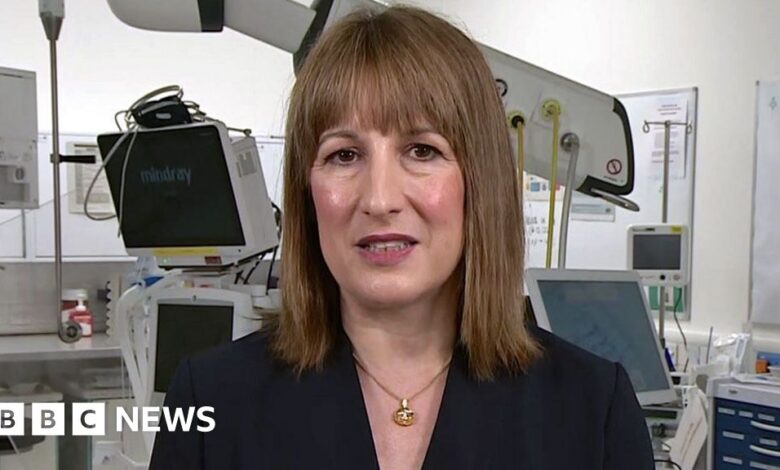Reeves refuses to rule out tax rises after economy shrinks

Chancellor Rachel Reeves has left the door open for potential tax increases in the future following a significant contraction in the UK economy in April. The unexpected 0.3% shrinkage was attributed to higher taxes for businesses, increased household bills, and a drop in exports to the US.
This economic setback comes on the heels of Reeves unveiling spending plans aimed at stimulating growth, including funding boosts for the NHS and defense, while tightening budgets in other areas. Economists cautioned that failure to spur UK growth could necessitate additional tax hikes later in the year to balance the government’s financial commitments.
Reeves acknowledged the disappointing economic data and refused to rule out tax increases in her upcoming autumn Budget announcement. She emphasized the uncertainty in the current global landscape, hinting at the possibility of tax adjustments to address economic challenges.
The Institute for Fiscal Studies (IFS) director, Paul Johnson, warned that any deviation from the outlined spending plans could lead to further tax rises. Similarly, Ruth Curtice, CEO of the Resolution Foundation, anticipated a revisit to tax policies in the autumn due to the weaker economic outlook.
While Reeves prioritized long-term investments in projects like new railway lines and the development of nuclear power plant Sizewell C to boost economic growth, immediate day-to-day spending budgets are expected to be constrained. Additionally, council tax is projected to rise to support local services.
Opposition parties criticized Reeves for the recent increase in employers’ National Insurance contributions, implemented in April, which they believe is hindering growth. The government’s borrowing costs have also risen, as investors express skepticism about the sustainability of the spending plans, potentially necessitating higher returns.
The sluggish growth in the UK has been a longstanding issue, with the services sector experiencing a tough month in April. Legal firms and property companies were particularly impacted following a strong March driven by homebuyers rushing to beat stamp duty increases.
Lewis Eager, a part-time supermarket worker, welcomed the investment in apprenticeships announced in the Spending Review, hoping it would create more opportunities for young job seekers like himself. Eager highlighted the challenges faced by many young people in securing full-time employment.
Car manufacturing took a hit in April due to the introduction of 25% tariffs on UK vehicles exported to the US, impacting the UK’s largest US export. The value of UK exports decreased significantly, with goods to the US experiencing the largest monthly decline in exports on record.
Shadow chancellor Mel Stride criticized Reeves’ economic decisions for the weak growth, predicting further tax hikes. Liberal Democrat Treasury spokesperson Daisy Cooper described the figures as a wake-up call for the government, urging better support for struggling small businesses affected by recent tax changes.
Overall, the economic landscape remains uncertain, with potential tax adjustments on the horizon as the government navigates through challenging economic conditions.





